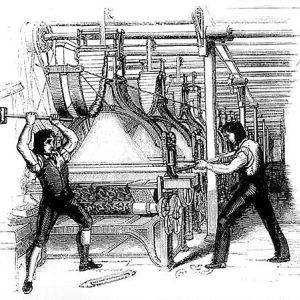Over the last year of taking classes in the publishing program, I’ve developed a drinking game to gauge technophobia. It’s best to play this game on the first day of the term, when we’re all introducing ourselves and stating why we’re here.
Drink every time:
- Someone zealously praises a book as an “artifact” or an “object.”
- Someone talks about how ebooks are “just not the same as print.”
- Someone says that they “just don’t get ebooks.”
- Someone gloats about how ebook sales decreased this year.
- Someone complains about how they can’t share ebooks with their friends.
- Someone says, “I just love the way books SMELL.”
Just kidding. Never play this game. You will die of alcohol poisoning.
Like any true book lover, I bristle when I hear someone say that publishing and/or print are dead. Because it’s not true. A Pew Research Center survey reported that 65% of Americans have read a print book in the past year, and that statistic has sustained since 2012. In contrast, only 28% of Americans read an ebook and 14% listened to an audiobook.
But in the same way my hackles rise when someone disparages print, when I hear so-called “book people” celebrate a drop in ebook sales, my head meets the desk. Why would you celebrate a drop in sales numbers just because the books are not in your preferred format? To me, this false dichotomy stands in denial of our current era of omnivorous content consumption and the fact that books—of all formats—need our support now more than ever.
Because you know what else that Pew Research study said? Last year, 26% of the population didn’t read any books in any format. Not a single one.
One of the most wonderful things about the Portland State publishing program is that it gives students the freedom to choose their focus. But that freedom also means that the Ooligan Press departments aren’t exactly balanced and students must actively push themselves out of their own comfort zones. When ebook production was offered this past spring, I was one of only three first-year graduate students to take the class. And so far this year, only a handful of people have come to help me with making ebooks and maintaining our website (you know who you are, and I love you).
I’m not going to bully anybody into doing something that makes them uncomfortable. Working on digital stuff can be extremely frustrating, especially when you are relatively new to it like I am. But I think the decision to not participate in (or even acknowledge the value of) digital bookmaking is often motivated by fear of the unknown. And that’s never good.
When we disparage ebooks, we’re doing ourselves and our industry a disservice. Because the fact is, yes, for major publishing companies ebook sales dropped about 25% between 2015 and 2016. But if you’re gloating about that, you’re also gloating about how overall publisher revenues dropped 6.7% and adult trade fiction book sales dropped 13% over the past year.
Many of my classmates are here at Portland State sharpening their editing, marketing, business, and design skills because they want a better chance of getting a job after graduation. And just like an editor has to be willing to edit manuscripts outside of their preferred genre, we are all going to have to push ourselves to try new things to keep our industry thriving.
Because in the end, we want our authors to find their audiences. If that sometimes comes at the expense of being able to sniff the glue that holds the pages together, isn’t it worth the trade?

